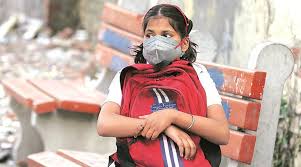
UN has recently released a report on the Impact of Covid-19 on Children. According to the report almost 24 million children could drop out or not have access to school next year due to the economic impact of Covid-19.
Daily Current Affairs Quiz 2020
Key-Points
About 188 countries have imposed countrywide school closures, affecting more than 1.5 billion children and youth.
More than two-thirds of countries have introduced a national distance learning platform, but among low-income countries the share of distance learning is only 30%.
Online learning is not accessible for poor children, children from remote and conflict areas and children with disabilities.
A loss of learning by one-third (equivalent to a three-month school closure) during Grade 3 might result in 72% of students falling so far behind that by Grade 10 they will have dropped out or will not be able to learn anything in school.
Economic hardship experienced by families as a result of the global economic downturn could result in hundreds of thousands of additional child deaths in 2020. This will reverse the last 2 to 3 years of progress in reducing infant mortality within a single year.
During the second quarter of 2020, 86% of children at the primary level have been effectively out of school in poor countries, compared to just 20% in highly developed countries.
The Covid-19 crisis is likely to increase the financing gap between education budgets and the money available to reach the Sustainable Development Goal of quality education by up to one-third.
Apart from the poor children, other vulnerable groups of children like migrants, the displaced, refugees, minorities, slum-dwellers, children living with disabilities, children living in refugee settlements, and children in institutions are likely to face a more severe impact.
The impact of Covid-19 is going to be more damaging for girls than boys, widening gender inequality.
Earlier this year, the Global Education Monitoring Report, 2020 was released by UNESCO which highlighted that the Covid-19 had worsened the inequalities in education systems worldwide.





